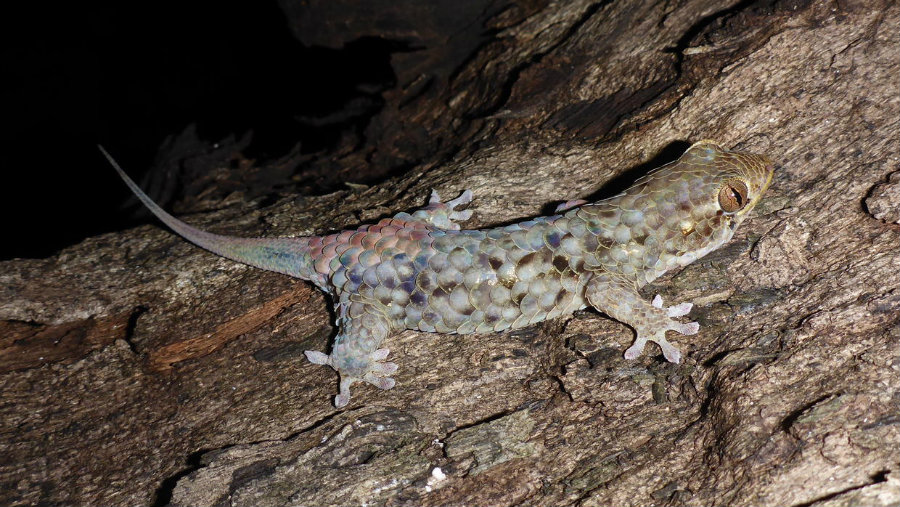Researchers discovered a new gecko species from northern Madagascar that can shed its scales and escape predators. The Geckolepis megalepis was described in a study published in the journal PeerJ by a group of investigators from the U.S., Germany, and Colombia, led by Mark D. Scherz.
Although the new specimen resembles others in its same biological classification by being able to regrow its tail, this small group known as fish-scale geckos employs a defensive mechanism that helps slip away from predators by losing, not just their large overlapping scales, but also the skin underneath.

Each of the gecko’s scale has unprecedented length. In proportion, each scale can be as large as 8 percent of its body length or about 0.2 inches. The large scales come off the body particularly easy because they’re only partly attached to the skin, explained Scherz, which turned catching the creature into a challenging maneuver. The gecko rapidly slides away, leaving the scales behind, reported The Two Way.
Three of this types of geckos were successfully caught
The method of collecting its scales posed possible damages to the fragile lizard, besides them being very delicate, so the team opted for more reliable approach: conducting bone analysis using micro-computed tomography.
The size, shape, and distribution of the scales, as well as other distinguishing features in its skeleton, confirmed to the authors they were dealing with a new species, said LiveScience.
Sherz added that the shedding strategy is not done so by accident. The animal contracts its muscle tissue to release the scales. Whether this is done voluntarily or as a reflex is not yet determined, as published on The Two Way.

The gecko is not naked in its shiny and pinkish body for too long. It can regenerate its scales in approximately two or three weeks to return without any perceptible difference to its original skin state of mottled shades of brown and cream. No blood or scar was spotted.
The team carried out analysis that verified that this type of scales is dense and highly mineralized. Growing them out brings some metabolic cost for the small 2.8-inch animal. It’s intriguing that it’s so quick to lose them.
“Whatever the cost of regenerating the scales, it cannot be as great as losing your life to a predator. So even when the cost could be enormous, it is worth it. That’s an interesting evolutionary strategy,” Scherz commented for LiveScience.
The newly found gecko’s ability to recover form is incredible in comparison to other lizards whose regeneration cycle is slower, according to Scherz.
This peculiar characteristic could have a big impact on researchers studying scarring and regeneration for human application.
Source: Peer J
